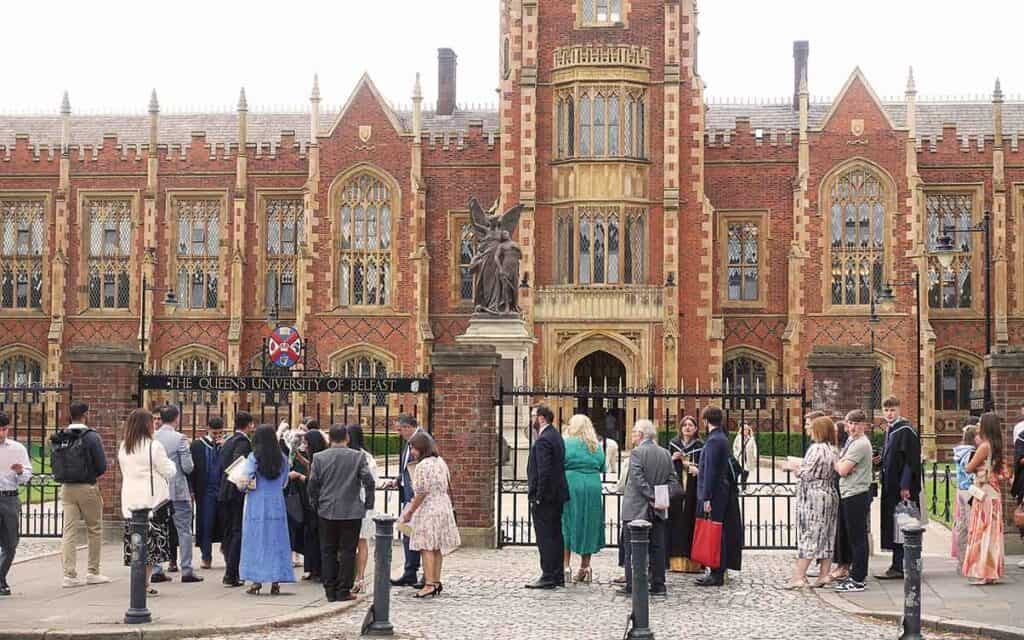After 18 months of bombing, not a single university remains in Gaza. Many students and teachers have been killed or injured. Nevertheless, there is a powerful will to continue studying as best they can.
The University of Gothenburg is helping to rebuild the teaching programme. The project is still at an early stage, and teaching has not yet started. It will mainly be in collaboration with Birzeit University, which is in the West Bank and is already providing online teaching to students in Gaza.
It began with the management of the University of Gothenburg sending out information to its teachers, and those who were interested in being involved were asked to register their interest. They were asked which subject areas they could teach and in what ways. A small group of teachers was then appointed by the vice-chancellor, Malin Broberg, to coordinate the work.
“We haven’t finalised how this will work exactly, but we are looking at both supervision and guest lectures,” says Karolina Catoni, coordinator of the Swedish section of Scholars at Risk at the University of Gothenburg.
“What we know for sure is that the collaboration will not mean that students from Gaza are admitted to the University of Gothenburg, but the work we do will be adapted to the needs on the ground.”
“For example, we have concluded that teaching should not take place in the evenings, as they use solar panels to generate electricity. It is important that we listen to what the universities in Gaza need and do not decide at our end how we will work.”
So far, pharmacy has been identified as an area in which lessons could be organised. According to Birzeit, the greatest needs are in health education and architecture. Some 50 teachers have already shown interest in participating, even though the teaching will take place in their spare time and without financial compensation, as the government has not instructed Swedish higher education institutions to support Palestinian students.
The teachers at the University of Gothenburg have networks with colleagues all over Sweden, and there is interest, but only Södertörn University has taken any formal steps.
“We saw that the University of Gothenburg had launched this idea, and we got in touch quite quickly,” says Cecilia Sjöholm, the vice-chancellor’s advisor on internationalisation issues at Södertörn University. “The vice-chancellor is very interested and would like me to coordinate it at our end.”
They have had a meeting with a group in Gothenburg that is coordinating the project, who made a presentation. They are now waiting for feedback from Palestine through the University of Gothenburg.
“We are not in direct contact ourselves for the time being, as we do not want to burden the university in Palestine that is working to set things up in Gaza. The important thing is that they know we are prepared to provide help if they need it. Then we will see if their needs match what we can offer,” says Sjöholm.
“I think the important thing is perhaps to show the universities in Gaza that they are not alone. Simply to show solidarity.”
Södertörn has not yet sent out enquiries to its teachers, but Cecilia Sjöholm is sure that there will be people keen to get involved.
“When we have talked about it, everybody thinks it is a very good idea. The interest is there.”
Universitetsläraren has contacted a number of other higher education institutions, but none of them has any plans for similar initiatives at this stage.


















